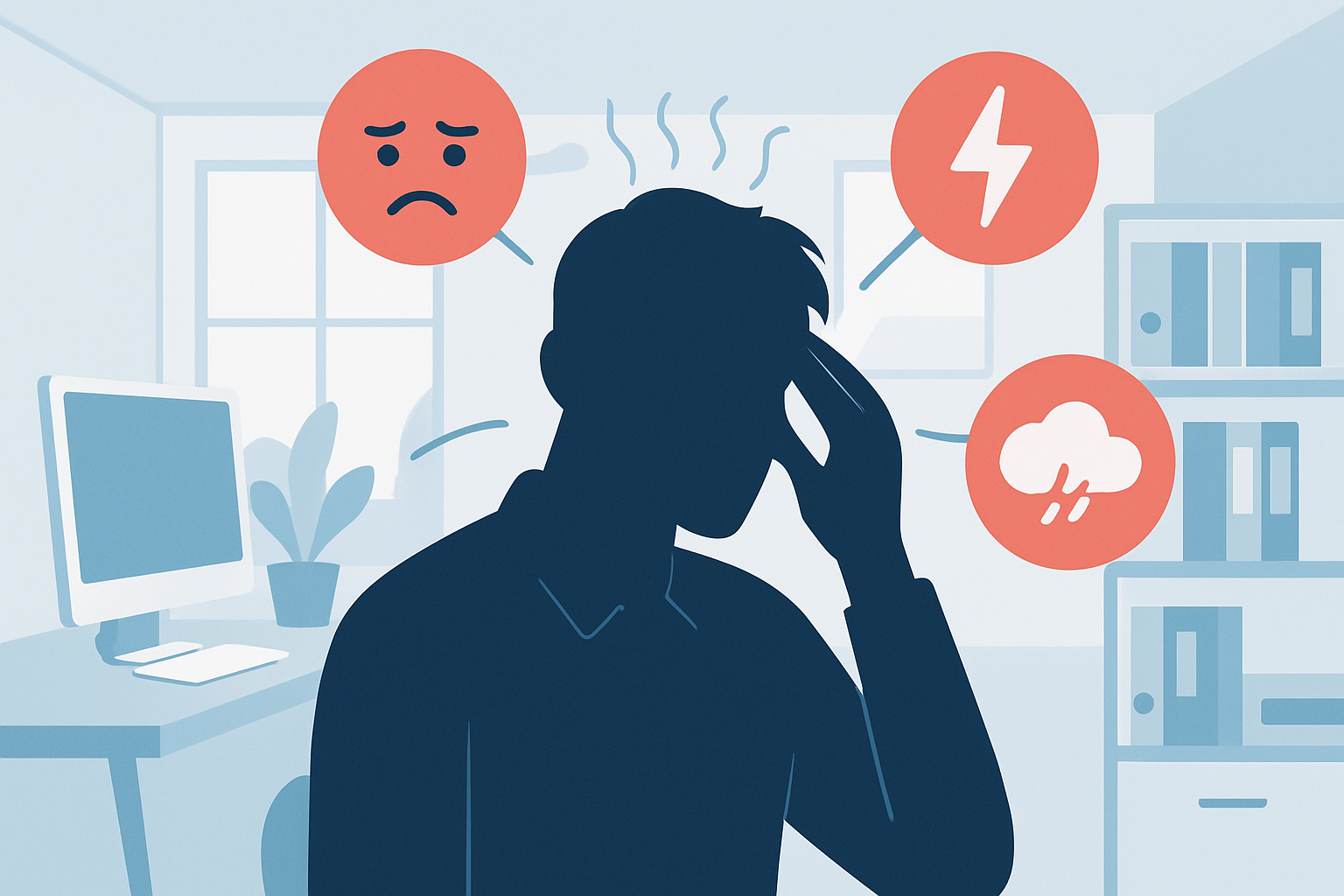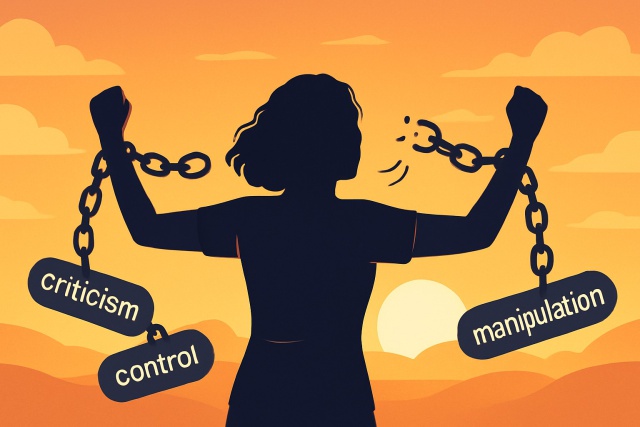Work stress has quietly crept into the daily grind for a lot of individuals in today’s fast-moving professional world. It’s really helpful to get a clear handle on what work stress actually means and how it can sneakily impact both your mental and physical health.
This article takes you on a straightforward journey through the basics: what work stress really is, where it sneaks up on us, how to recognize the telltale signs and the ways it can quietly chip away at your health.
Understanding Work Stress The Juggling Act We All Know Too Well
Work stress sneaks in when job demands don’t match a person’s skills, resources or needs. You might notice it as the all-too-familiar feeling of being overwhelmed or under constant pressure. Physically, it can show up as a racing heartbeat or tense muscles we all dread. Stress is the body’s way of gearing up to tackle challenges.
Feeling a bit rushed right before a deadline is that kind of work stress we have all come to know—it often kicks our focus into high gear. On the flip side, the kind of stress that sticks around like an unwelcome guest—ongoing anxiety about mountain-high workloads or fuzzy job roles—tends to be chronic stress.
Frequent Reasons Behind Work Stress That Get Under Our Skin at the Office
- Juggling a heavy workload packed with countless tasks and responsibilities that sometimes feel like they’re running away with you
- Vague job expectations that leave people scratching their heads about what’s really expected or where to focus their energy
- Strict or downright unrealistic deadlines that keep the pressure cooker simmering and make it tough to catch a breather
- Feeling boxed in with limited control over work decisions or processes which can chip away at your sense of agency
- Management hiccups like not getting enough support or dealing with communication that misses the mark
- Tensions with colleagues or supervisors that throw a wrench in the flow of a usually positive work vibe
- Lingering worries about job security or that gnawing uncertainty about what the future holds on the employment front
Each of these causes hits employees differently depending on their personal tolerance and unique situation. Some stressors like a sudden deadline tend to spark quick bursts of pressure that feel intense but pass relatively fast. Others such as ongoing poor management sneak up slowly and wear down resilience bit by bit.
In What Ways Does Work Stress Tend to Show Up?
Work stress hits people in many ways, shaking up emotions and behavior as well as thought patterns and physical health. Spotting early warning signs can be a game changer in keeping stress from snowballing into something bigger.
- Emotional signs like anxiety sneaking up, irritability flaring more than usual, frustration bubbling under the surface and mood swings that seem to come out of nowhere
- Behavioral shifts such as suddenly taking off more often, retreating from social circles, putting things off until the last minute or seeing a noticeable dip in productivity
- Mental hurdles like finding it harder to focus, forgetting things more frequently and wrestling with even simple decisions
- Physical symptoms that won’t quit including persistent headaches, tight muscles that won’t loosen up, tiredness that feels bone-deep and restless nights spent staring at the ceiling
- Leaning more heavily on caffeine, alcohol or tobacco as a way to get through the day
- Becoming unusually sensitive to even gentle criticism or getting into little disputes with coworkers more often than usual
- Feeling completely swamped or emotionally tapped out by tasks that used to be no big deal
- Having a tough time winding down or clearing your head of work worries when you finally get a moment to yourself
Someone might initially notice little annoyances during meetings. Then before you know it, deadlines start slipping through the cracks and eventually there is lingering tiredness and stubborn headaches that just will not quit. Spotting these red flags early can really make a difference.
How Work Stress Sneaks Into Your Physical Health
Ongoing work stress tends to keep the body's stress response system running on overdrive for way too long, which can eventually take a toll and cause some not-so-great effects on the body.
- A greater likelihood of cardiovascular troubles like high blood pressure and heart attacks since blood pressure often creeps up under stress
- A weakened immune system that leaves you more open to infections and means healing can take longer than usual
- Digestive headaches such as stomach pain, acid reflux and irritable bowel syndrome that tend to appear when stress is present
- Persistent aches including muscle tension, nagging backaches or stubborn migraines that stress amplifies
- Sleep disturbances that harm overall health and leave you feeling more wiped out than you would like
When stress hits, hormones like cortisol and adrenaline rush through your body like a storm. In small doses, they can be helpful and give you a quick surge of energy to tackle a problem. But if these hormone levels stay high for too long they start causing trouble—think inflammation and a serious upset to your body's usual groove.
How Work Stress Throws a Wrench in Your Mental Health
Ongoing work stress can chip away at your mental health and often makes anxiety, depression and burnout worse. It slowly drains your emotional reserves and usually leaves you feeling less satisfied with life overall
- Feeling so overwhelmed that even the smallest daily tasks suddenly seem like climbing a steep hill
- Finding your motivation slipping through your fingers and losing the spark for work or hobbies you once enjoyed
- Dealing with emotional burnout that sneaks in as relentless fatigue and this foggy sense of detachment from what used to matter
- Becoming more vulnerable to anxiety and depression if the stress isn’t tackled head-on and left to brew
Chronic work stress appears to mess with brain functions linked to memory and attention as well as decision-making.
Work stress sneaks up on millions worldwide, quietly chipping away at mental health and job performance. Catching those early warning signs and asking for help early on can make all the difference in breaking the cycle and safeguarding your well-being before things spiral.
Who Usually Bears the Brunt of Work Stress?
Some individuals seem to feel the heat of work stress more sharply thanks to their personality quirks, the vibe of their workplace and pressures from outside.
- People working in high-pressure gigs like emergency responders or executives juggling nonstop demands often find themselves stretched thin
- Those who barely have a say in how their work gets done, whether it’s the tasks or the scheduling, can feel stuck in a tough spot
- Employees lacking much backup from coworkers, supervisors or family can really feel the strain mounting
- Individuals already dealing with physical or mental health challenges might find their resilience running low which only adds to the challenge
Personal coping skills and resilience often punch above their weight when it comes to how people experience and handle stress.
Practical Ways to Handle and Ease Work Stress (Because We’ve All Been There)
Handling work stress often calls for a blend of personal habits and some shifts at the workplace.
- Spot your personal work stress triggers early. Catching them before they snowball can save you a ton of headaches later.
- Nail down your time management by focusing on what truly counts and breaking daunting projects into bite-sized pieces.
- Keep your goals and expectations grounded. Shooting for the moon sounds great but it can leave you feeling deflated if you miss.
- Don’t hesitate to lean on your coworkers, managers, friends or support groups because sharing the load often lightens the weight more than you’d think.
- Remember to take regular breaks during your workday. Even a short pause can reboot your focus and energy.
- Slip in some mindfulness practices like deep breathing or meditation since they’re little lifesavers for relaxing and keeping your feet on the ground.
- When stress starts piling up beyond your comfort zone, it’s totally okay to seek help from a therapist or tap into your employee assistance program.
Organizations play a key role in crafting policies that back work-life balance, open communication and initiatives aimed at boosting employee well-being. Offering flexible hours and mental health days plus solid management training can really make a difference in easing stress levels across the board
When to Seek Help by Spotting Serious Stress and Burnout Early
When work stress starts to take a real toll on your body or mind, it’s usually a sign to consider reaching out for a bit of professional help.
- Feeling constantly wiped out even after what should have been a good rest
- Going through emotional numbness or feeling strangely detached from both work and relationships like you’re watching life from the sidelines
- Missing more work days than usual or finding it tough to keep up with job demands
- Noticing your physical health taking a nosedive with frequent colds or nagging pain that just won’t quit
- Struggling to focus or make decisions which inevitably puts a dent in your work performance





